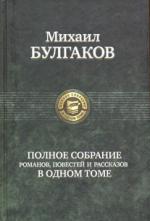|
This section contains 9,133 words (approx. 31 pages at 300 words per page) |

|
SOURCE: "Feeding a Poor Dog a Bone: The Quest for Nourishment in Bulgakov's Sobach'e serdtse," in The Russian Review, Vol. 52, No. 1, January, 1993, pp. 58-78.
Below, LeBlanc analyzes The Heart of a Dog (Sobach'e serdtse) as a tale about the need for physical and spiritual sustenance, asserting that Bulgakov's focus on language and imagery pertaining to eating signifies the "deleterious effects that the Bolshevik Revolution and the concomitant victory of the proletariat were having upon the level of culture in Soviet Russia. "
Mikhail Bulgakov's Sobach'e serdtse (1925), most critics would agree, is essentially the tale of a transformation gone awry: it tells the story of how a scientist—through a misguided organ transplant operation—turns "a perfectly delightful dog" into a disgustingly vulgar quasi-human being. As Helena Goscilo explains [in "Point of View in Bulgakov's Heart of a Dog," in Russian Literature Triquarterly 15 (1978)], "those human qualities that made Sharik so...
|
This section contains 9,133 words (approx. 31 pages at 300 words per page) |

|


